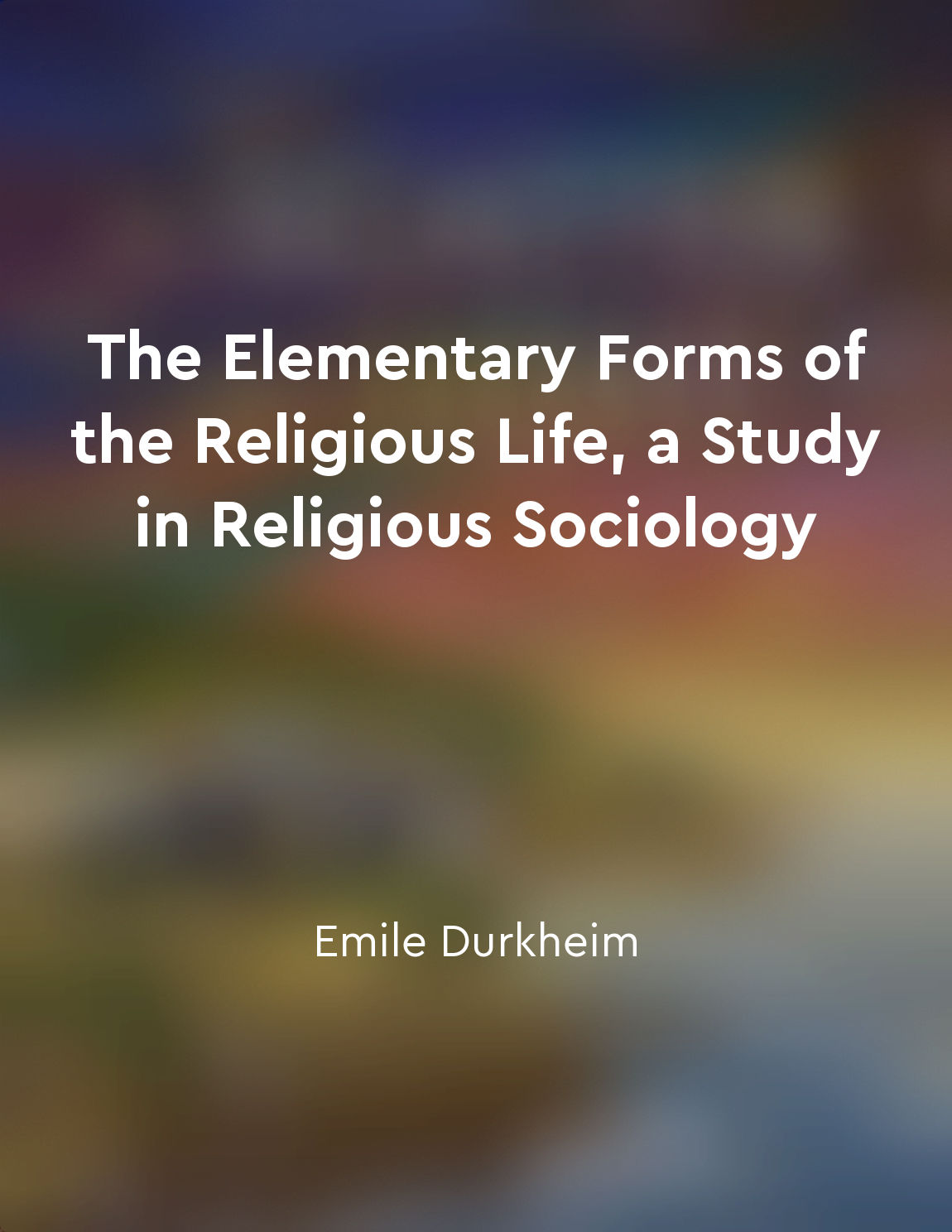The division between the sacred and profane is fundamental from "summary" of The Elementary Forms of the Religious Life, a Study in Religious Sociology by Emile Durkheim
Durkheim argues that the distinction between the sacred and the profane lies at the very core of religious life. This division is not just a superficial categorization, but a fundamental concept that shapes the entire structure of religious beliefs and practices. The sacred is characterized by its extraordinary, transcendent nature, while the profane is associated with the ordinary, mundane aspects of life. In Durkheim's view, the sacred is revered and set apart from the profane, creating a sense of awe and reverence among believers. The sacred represents ideals, values, and beliefs that are deemed sacred and inviolable, while the profane encompasses the everyday activities and objects of ordinary life. This distinction serves to maintain social order and cohesion within religious communities. Moreover, the division between the sacred and the profane is not static but dynamic, as it is constantly reaffirmed and reinforced through rituals and ceremonies. Religious rituals serve to set aside sacred time and space, creating a realm that is distinct from the profane world. Through these rituals, believers reaffirm their commitment to the sacred and reinforce the boundaries between the sacred and the profane. Durkheim emphasizes that the sacred is not simply a reflection of individual beliefs or desires, but a collective representation that binds members of a society together. By upholding the distinction between the sacred and the profane, religious communities establish a shared moral framework and sense of identity. This sense of shared identity is essential for maintaining social cohesion and solidarity within a society.- The division between the sacred and the profane is a foundational concept in religious sociology, shaping the beliefs, practices, and social organization of religious communities. This distinction serves to create a sense of reverence, cohesion, and collective identity among believers, reinforcing the importance of the sacred in shaping human societies.


